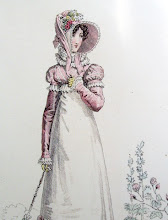The thing I like about writing fiction is you can't just make stuff up. (I know, look at me opening with the counter-intuitive statement.)
It's true: every work of fiction has (should have) its own internal logic, and once it's been established, the author has to work within it. In non-fiction, you don't have to justify the events that occur. You simply say, 'It's a true story - it happened to my aunt/grandfather/neighbour's gardener.' If the reader thinks the story is unlikely, that it didn't happen, the author's response is 'Well, it did.' End of.
In fiction, that's not a good enough explanation though. Readers won't swallow wild coincidences or sudden changes in characters' personalities, even though this technically happens often enough in real life. But they'll swallow all sorts of impossibilities as long as they happen logically.
For example, my novel involves one instance of time-travel. 'Time slip' I think is the term for it. It happens once; it's just a plot device to get my mc into a different period. But I was workshopping some of it in class the other day, and the whole discussion got hijacked by the mechanics of time-travel.
'But how does it work?' they wanted to know.
'Er...I dunno,' was my incisive reply.
'Well is it a wormhole? A space-time rip?'
'Um. Maybe. Ok. Yes... a wormhole.'
What I wanted to say was, 'Who bloody cares? It's not important. Do I look like a physicist? What's important is what happens afterward.'
I didn't, because once I thought about it, I was fascinated that what I hadn't thought of as more than a plot-device other people saw as part of the plot. They wanted the logic of it, even though time-travel is, in real life, impossible.
But then I realised my book is not at all sci-fi-y, and there are no physicists in it to explain how the time-travel works, so I changed my mind.
'Um, actually, it's not a wormhole, it's magic.'
'Oh, ok then.'
See? It might be impossible, but as long as it's justified, readers are happy.
I was verbally abused in
18 hours ago


Oh well said! I think if it sounds feasible enough you can just drop one or two sentences in to explain the plot device and then move on to the real meat of the story!!! And it's great that your group was able to help you out with this. Yay!!
ReplyDeleteFor me if I can't explain the logic of a plot/plot device to myself then I don't use it!
Take care
x
Love it! I've got a sci-fi rolling around in my head and I think knowing 'it' works is enough too :)
ReplyDeleteOld Kitty - I think it's very important to understand everything in our stories! And yes, I have a very helpful workshop group.
ReplyDeleteJemi - Thanks, good to know I'm not the only one who thinks this way!
Funny post! Good on-the-spot thinking. How about a blip in the brain for an explanation? That's how they explain de-ja-vu, isn't it?
ReplyDeleteA blip in the brain sounds like a good explanation for most things!
ReplyDeleteI have heard that about deja vu. A sudden spurt of 'what it feels like to remember something' chemical or something.